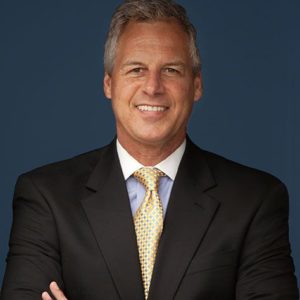5 Habits To Maximize The Effect Of Recognition


 Few things have as powerful an effect on any of us as hearing our boss tell us that they are proud of us, that our work is really good. This is because we all need to know that our contributions count for something—that we are helping the leader and our organization succeed, and that our work has significance. Managers too often disregard how critically important this is to people, how deeply it inspires, and why it’s so essential to building and sustaining high performance. Unlike pay and other financial rewards, being praised and recognized is an expression of care, and this—and not money—affects the hearts in people.
Few things have as powerful an effect on any of us as hearing our boss tell us that they are proud of us, that our work is really good. This is because we all need to know that our contributions count for something—that we are helping the leader and our organization succeed, and that our work has significance. Managers too often disregard how critically important this is to people, how deeply it inspires, and why it’s so essential to building and sustaining high performance. Unlike pay and other financial rewards, being praised and recognized is an expression of care, and this—and not money—affects the hearts in people.
Seeking to make my recognition of people drive the greatest engagement and productivity, I experimented with different approaches and practices. After 20 more years of testing and observing, I concluded there are five habits leaders must develop in order to maximize the effect of recognition and thereby derive its greatest benefits:
Leadership author Bruce Tulgan wrote a cleverly titled book, Not Everyone Gets a Trophy, as one of the first guides to understanding the millennial generation (born 1981– 1994). His title refers to the then common practice of awarding trophies to millennial children just for participating in activities like soccer and other sports. The idea of handing trophies to everyone, and not just to kids whose teams won a championship, came out of a belief that it would build self-esteem. It’s since been found to be completely misguided. And it’s just as bad an idea—even out of a generous spirit—to give working adults recognition when it’s not deserved.
Employees must understand what standard of performance a leader expects and also to know that meeting these standards will be met with praise. But the meaning and importance of recognition to people is fully diluted when it’s not fairly earned. Much like a teacher who hands out A’s to every student, the grade rings hollow for students who know they didn’t really earn it. Even worse, it suggests to all those who did that their extra effort wasn’t really worth it—and won’t be worth it in the future. The leader’s job is to hold people to high standards, proactively help them reach them, and authentically honor those whose achievements warrant it.
We’ve somehow been led to believe that rationing recognition or extending it to just a few people, the top three, for example, is logical and makes good business sense. This idea must be rejected. Your objective as a leader is to make every person on your team effective. To not honor and acknowledge achievement that meets or exceeds the very targets you set for people is the surest way of defeating an employee’s spirit, initiative, and drive.
Unless the leader takes things to saccharine excess, it’s virtually impossible to overappreciate people. As long as praise is earned and deserved, acknowledging performance only has the effect of inspiring greater future effort and commitment. Not praising it is inherently harmful, and choosing to ignore accomplishments in the belief that they’re an example of someone “just doing their job” is leadership malpractice. Reserving recognition just for unique or long-term achievements also undermines people and their performance.
The idea that recognition is important seems to be widely accepted in business, but what too often gets missed is the spirit behind the practice. People can sense when a leader is expressing real appreciation, and only when it’s genuine can it deeply affect people. Conversely, when it doesn’t come sincerely—from the heart—the recognition has little chance of affecting someone else’s.
Recognition is an act of giving and of reinforcing the value and contributions of people. Through your words, your intonation, and physiology, make it apparent that you are thriving in your employees’ success, honored by their effort, and that their high achievements matter to you personally. To be clear, this doesn’t call on a leader to gush or overdo the praise. If you truly value people and the accomplishments they make, the right behavior will flow naturally.
It was an epiphany for me when I first realized people will work really hard to earn recognition. Once I fully understood this, I decided I must institutionalize recognition—meaning that I needed to inform my team what specific performance I would consistently recognize and then deliver upon that promise without fail.
I laid out our goals, emphasized which ones were most important, then created a designated time throughout the year to acknowledge collective and individual achievements. I wanted to make sure everyone who worked for me came to expect that high performance and achievement would be consistently rewarded—to know their great work would always be honored and never overlooked.
I learned the ideal time to honor team achievements is at the start of every month, at a team meeting where all members are present. Call people to the front of the room. Have them stand. Clap for them. Put their faces front-and-center on the screen if they are working remotely. Your goal is to make your recognition a ceremony. Take time to describe the hurdles people faced—tell the team what behaviors led a person to perform so well. Doing this doesn’t just honor the person you are recognizing; it explains to everyone on the team what behaviors you as their leader value most.
The power of encouragement, as an antidote to doubt and fear, is inestimable. Giving people encouragement when they are struggling, worried they can’t measure up or faced with a new wall to climb is the tonic that helps people exceed their own expectations. Encouragement inspires optimism and influences people to become and accomplish more.
There are many ways to accomplish this. Send an e-mail to the entire team to express your confidence in them. Handwrite a note to someone you want to more personally support. (Doing this is extremely meaningful to people. Many former employees of mine have told me they still have notes I sent them years after we worked together). Express it to people directly in meetings, when you are coaching—whenever you sense someone needs it. By encouraging employees, you positively affect their hearts and thereby motivate their greatest future performance.
Excerpted with permission from Lead From The Heart: Transformational Leadership For The 21st Century (Hay House Business, Aug. 2022).

Chief Executive Group exists to improve the performance of U.S. CEOs, senior executives and public-company directors, helping you grow your companies, build your communities and strengthen society. Learn more at chiefexecutivegroup.com.
0

1:00 - 5:00 pm
Over 70% of Executives Surveyed Agree: Many Strategic Planning Efforts Lack Systematic Approach Tips for Enhancing Your Strategic Planning Process
Executives expressed frustration with their current strategic planning process. Issues include:
Steve Rutan and Denise Harrison have put together an afternoon workshop that will provide the tools you need to address these concerns. They have worked with hundreds of executives to develop a systematic approach that will enable your team to make better decisions during strategic planning. Steve and Denise will walk you through exercises for prioritizing your lists and steps that will reset and reinvigorate your process. This will be a hands-on workshop that will enable you to think about your business as you use the tools that are being presented. If you are ready for a Strategic Planning tune-up, select this workshop in your registration form. The additional fee of $695 will be added to your total.

2:00 - 5:00 pm
Female leaders face the same issues all leaders do, but they often face additional challenges too. In this peer session, we will facilitate a discussion of best practices and how to overcome common barriers to help women leaders be more effective within and outside their organizations.
Limited space available.

10:30 - 5:00 pm
General’s Retreat at Hermitage Golf Course
Sponsored by UBS
General’s Retreat, built in 1986 with architect Gary Roger Baird, has been voted the “Best Golf Course in Nashville” and is a “must play” when visiting the Nashville, Tennessee area. With the beautiful setting along the Cumberland River, golfers of all capabilities will thoroughly enjoy the golf, scenery and hospitality.
The golf outing fee includes transportation to and from the hotel, greens/cart fees, use of practice facilities, and boxed lunch. The bus will leave the hotel at 10:30 am for a noon shotgun start and return to the hotel after the cocktail reception following the completion of the round.